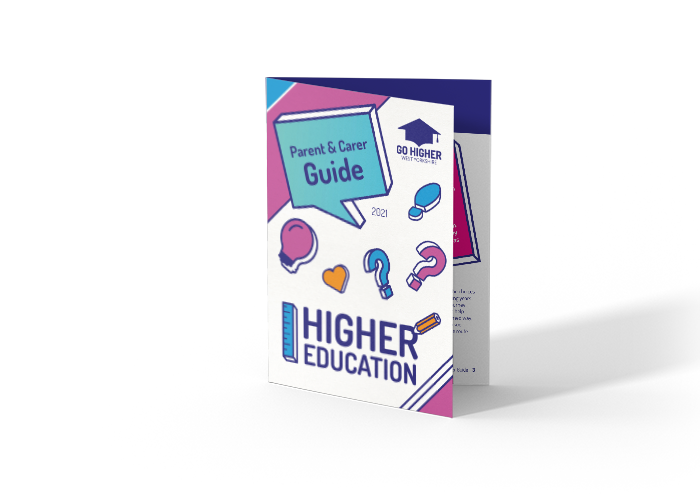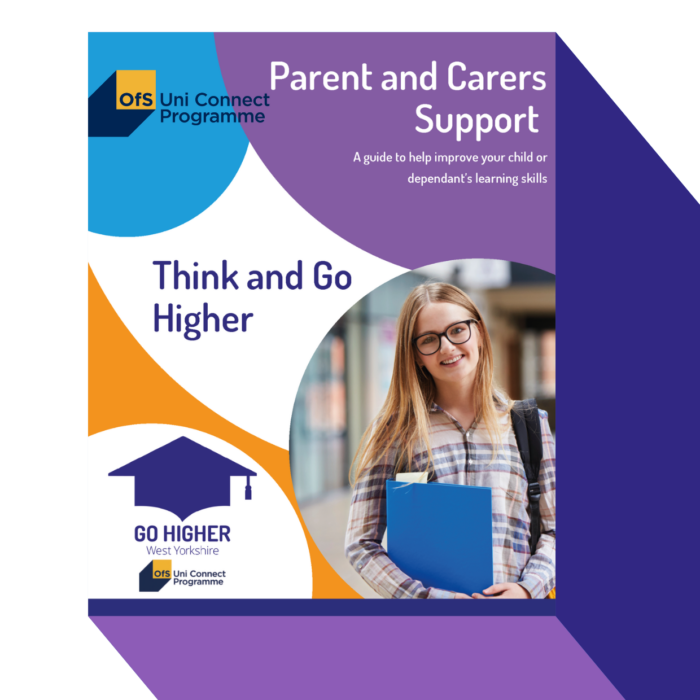Parents and Carers
-

Parent and Carer Guide
This guide contains key information you may need to be aware of when supporting your young person through their education journey.
View Resources
-
Parent and Carer Guide (Accessible PDF)
pdf (2.18 MB)
-
-

Parent and Carers Attainment Raising Guide
You will find this guide packed full of information and activities to support your child or dependant in raising their attainment via developing metacognitive skills. But what is Attainment Raising, and why is it important?
View Resources
-
Parent and Carers Support Guide
-
Top tips for parents and carers
Navigating the HE landscape can be tricky for parents and carers as well as for the young person applying. Here are some top tips for helping the process to go as smoothly as possible.
- Be supportive. Listen to your young person’s thoughts and ideas and talk to them about any concerns or indecision they may be experiencing. It can be a useful exercise for both parties to undertake some research together but remember that, ultimately, it is vital that young people make the right decision for them.
- Accompany them to an Open Day but allow space for them to ask the questions. It can be tempting to fill quiet moments with lots of questions on a young person’s behalf, or take the lead to make sure all of the important information is being discussed. However, open days are a great opportunity for young people to start taking ownership of their decision-making process so be sure to let them lead the way when it comes to choosing which sessions to attend and communicating with staff and current students.
- Research what financial support is available. Are there bursaries available? What additional costs are there to the course? What financial support is there? Start this conversation early. If applying for Disability Students Allowance, allow for reasonable adjustment. Build a relationship with the institution so that you know what is available. Look to the website for information, ask questions at Open Days and via the info@ email address.
- It can be hugely beneficial for prospective students to be equipped with some ‘survival skills’ before they start their course, especially if they will be moving away from home. This might include budgeting skills, learning how to cook some nutritious and cheap meals, how to find a bargain, or how to wash their own clothes.
Useful links
Student Finance
Support and help with student finance
